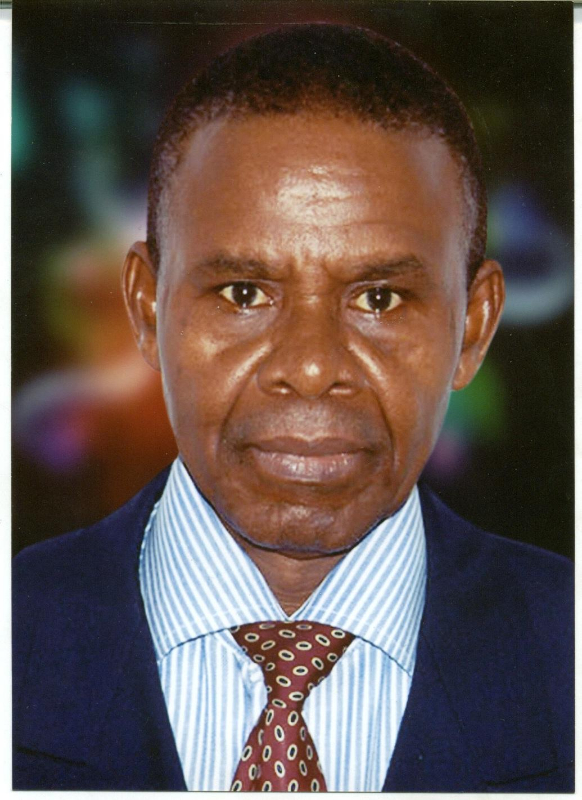BY CHIMA NWAFO
There was nothing new in the recent report of the French-owned AFP on the devastating oil spills in the Niger Delta communities. The region is an ecological nightmare, the most environmentally threatened location. As a result, the crude oil find in the region can rightly be said to be a blessing to the Federal Government, her allies and politically-privileged elites, but a curse to the people. That is why despite
Government’s grandstanding on oil theft or illegal oil bunkering, informed Nigerians know the truth.
The beleaguered militants accused of illegal oil bunkering, pipeline vandalism and illegal refining are mere pawns, small fries, trifling veneers on their petroleum politics architecture. The Big Boys are known and no Task Force Commander would risk exposing them. After all, the incidence did not begin in the First Republic. They are fall-outs of the civil war. Some oil industry pundits even believe that most of what is described as “stolen oil” courses its way to Great Britain even though Buckingham Palace/No. 10 Downing Street and Aso Rock Villa turn a blind.


The father-son relationship birthed during the 1966 civil disturbances and paved the way for the ugly events of 1967-1970. For the benefit of the younger generation, detail of what transpired then is graphically encapsulated in Brutality of Nations by Dan Jacobs: a US media-staff of the United Nations, New York. He witnessed the cruel and inhuman manipulation of institutions and technocrats by the British Government led by Prime Minister Harold Wilson. This is not a distraction because, unknown to many, it is the root of the environmental and political issues bedevilling the Niger Delta till date. It began with a dispute over payment of oil royalties in 1967: Although the Royal-Dutch Shell was aware of its obligation to then Eastern Region government, given that Nigeria operated a genuine federal at the time. Later developments unveiled the conspiracy. The rest is history which retributive impact is currently hurting.
On Friday, January 3, there was a Back Page opinion piece in Daily Sun, which decried the state of affairs in the oil-rich Niger Delta. Headlined as the sacrificial lamb of Nigeria, it was also said be the pollution capital of the world.
In The Guardian of Sunday, January 5, a news feature recalled the four-year-old incidence of air pollution, which attracted wide publicity, adding that since 2016, neither the state nor the Federal Government had done anything about the menace, despite its health hazard.
The AFP illustrated its report with the experience of one Martha Alfred, 33-year-old mother of two from the Bayelsa State community of Ikarama-Okordia, whom it described as angry and helpless; because “she used to harvest 20 bags of cassava each year before an oil spill forced her to abandon her farm, and now she hawks roasted fish to survive.” She was quoted as saying: “The soil has become infertile because of the spills. Each time I remember the spills, and now the floods, my heart bleeds.” Multiply that heart-bleeding by the number of farmers and fishers in the community. “A major pipeline that passes through the fishing and farming community of 50,000 people has been the subject of spills and militant attacks for over 20 years.”

For balance, they approached Shell, whose spokesman insisted British-Dutch oil czar meets its obligations on all clean-ups and helps affected communities, whatever the reasons for the leakages. “Shell has always and will always live up to its responsibility,” spokesman Bamidele Odugbesan said, adding: “The problem we face is re-pollution. After we clean a site, the vandals will go back and damage the facility to steal the oil without considering the negative impact on the environment. We recorded a total of 21 spills in the area between 2009 and 2018.”

However, AFP found evidence of a destroyed ecosystem in Nigeria, Africa’s largest oil producer, currently producing an average of two million barrels of crude per day, which accounts for 90 per cent of foreign exchange earnings;a vicious cycle being repeated across the entire region: environmental degradation, pollution, neglect, under-development, anger, frustration and pain. “In Oloibiri, where crude was first discovered in Nigeria in 1956, the locals live in abject poverty. No jobs, roads, hospitals and schools. The oil well no longer produces and is overgrown with weeds, while the residents drink and wash in the stream water.”
Since he who wears the shoe knows where it pinches, the communities and even civil society groups could not share Odugbesan’s verdict. First, Martha: “People from Shell came and promised to do something for me. Up until now (August 2019), I have not heard from them.” Next, Michael Karikpo of Environmental Rights Action lobby group: “The oil firms have destroyed the region’s ecosystem through their operations. The people’s mainstay of farming and fishing has been ruined without providing an alternative, forcing local residents to engage in criminality for survival. That’s why incidents of bunkering, oil thefts, pipeline vandalisation and illegal refineries will continue in the Niger Delta; only very few Nigerians were benefiting from oil money, while tens of millions eke out a living on less than two dollars per day.” Anyakwee Nsirimovu of Niger Delta Civil Society Coalition cautions: “The nation is sitting on a keg of gunpowder if nothing is done to address the grievances of the oil-producing communities. Rather than being a benefit, oil has been a curse for the people.”
According to the Daily Sun piece, “Niger Delta supplies about 95 per cent of Nigeria’s export earnings, 80 per cent of Federal government’s aggregate revenue. Occupying 70,000 square kilometres or about 7.5 per cent of Nigeria’s landmass, the Niger Delta is inhabited by about 25 million people from the nine oil-producing states spinning trillions of dollars for the government.” This makes the region the indisputable life-support of Nigerian economy. Yet, there is little to show in terms of socio-economic and political dividends to the people who “50 per cent of her youths are unemployed.” The foregoing is confirmed by a 2011 study by the Woodrow Wilson International Centre for Scholars. Its findings showed that 546 million gallons of crude were spilt in Nigeria’s 159 oil fields – 78 of them in the Niger Basin – between 1958 and 2010; 300 spills or nearly 10.8 million gallons per year. Also, 50,000 acres of mangroves disappeared between 1986 and 2003, and 32 per cent associated was gas flared.


This raises an interesting question as to the extent of social commitment of the international oil corporations (IOCs) to their host communities in the last 5o years. Equally saddening is the insouciance of the Federal Government/Nigeria National Oil Corporations (NNPC) and the IOC-joint venture partners who refuse to accept responsibility for neglect. The case of Ogoni land which the United Nations Environmental Programme (UNEP) recommended its comprehensive remediation since 2011 is still within the realms of politicking, eight years after a programme that is supposed to last 30 years.
However, this disdain could not have continued unbroken without the connivance of state politicians and the traditional institution. Early last year, a state governor accused the oil giants of environmental terrorism, alleging that they are largely responsible for the recurring inter-communal clash and youth restiveness in the oil-rich communities of Niger Delta.
The Guardian recalled: “Four years ago, deadly black soot seized the Port Harcourt and several parts of the state’s skyline, causing massive air pollution, fears of air-induced ailments persist, while there is a stark absence of concerted effort by governments at all levels to tackle the deadly pollution.
“….. Predictions by health professionals that residents of the state are likely to experience chronic respiratory diseases, skin diseases, heart problem, and an increase in the mortality rate is manifesting” according to findings from hospitals in the state.
The incidence of the menace of particulate matter began, private citizens rose in protest, and various actions including enlightenment campaigns were initiated, though not sustained due to lack of encouragement or funding. Unfortunately, the Federal Ministry of Environment doesn’t seem to have been bothered about the widely reported air pollution in the oil-producing Rivers State.
Explaining causes of particulate matter, Wikipedia states: “Some are emitted directly from a source such as construction sites, unpaved roads, fields, smokestacks or fires. Most particles form in the atmosphere as a result of complex reactions of chemicals, such as sulfur dioxide and nitrogen oxides, which are pollutants emitted from power plants, industries and automobiles. On the health effects, it notes: “Exposure to such particles can affect both your lungs and your heart. Numerous scientific studies have linked particle pollution exposure to a variety of (health) problems, including premature death in people with heart or lung disease.”

From the foregoing, an investigation by a youth group sponsored by Friends of the Earth on the soot is commendable. Mediareports also captured the lunch of the finding by Young Friends of the Earth. Their leader, Mr Victor Washington said: “The effect of air pollution on a human being is worse than the dreaded HIV/AIDS.”
Before issuing the statement, the young scientists had gathered data on the impact of particulate matter on communities measured the level of particulate matter in the atmosphere; went close to the swamps, the refineries/petrochemical plants for 24 hours every day and collected ambient air quality samples and tested the level of pollution is in the atmosphere.”
The NNPC, IOCs and electricity companies complain of vandalisation of their facilities: Why is it that MTN and other telecos with Base Stations nationwide do not complain of destruction of their installations?
*Nwafo, Consulting Editor of News Express and Environmental Analyst, can be reached on: chi_dafo@yahoo.com; +2348029334754.
Share your story or I Witness Reports with us 24/7
via: SMS: +234 (0)9076248001
Whatsapp: +234(0)8072022024, Email: gatmashblog@gmail.com,
follow us on our social platform.
Gatmash Blog is the most sorts after news portal with increasing reading
audience, exclusive breaking news reports across the globe and more. Website: www.gatmash.com
For advert placement, contact us today via email: gatmashblog@gmail.com or call our hotlines on Tel: +234(0)8072022024, 08166622444, 09076248001













